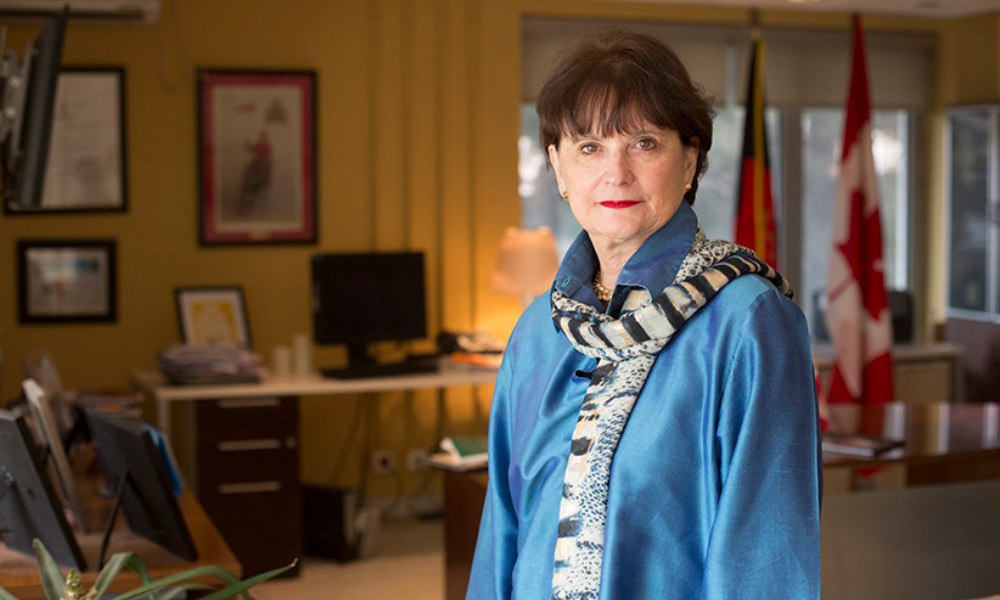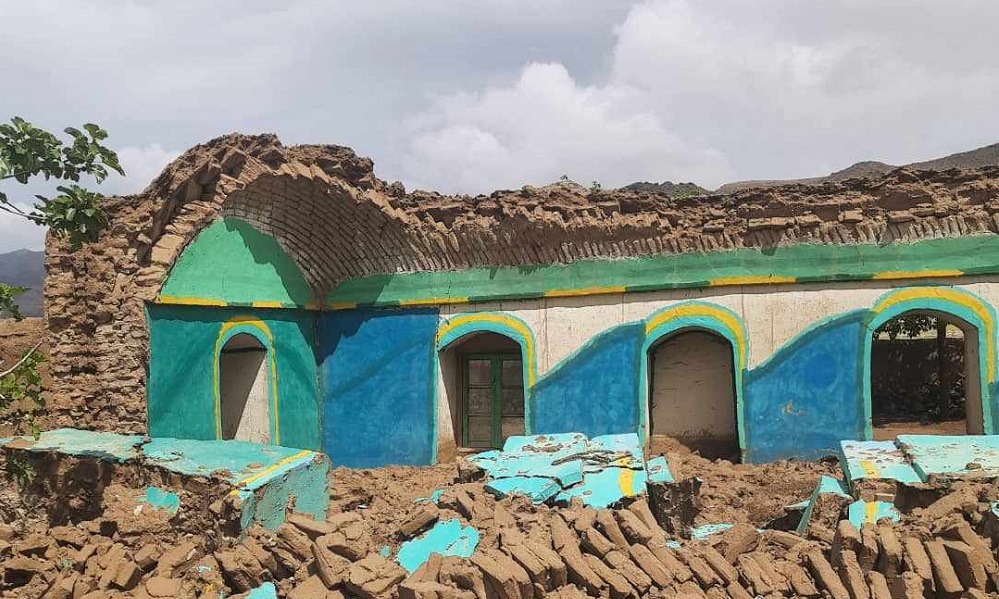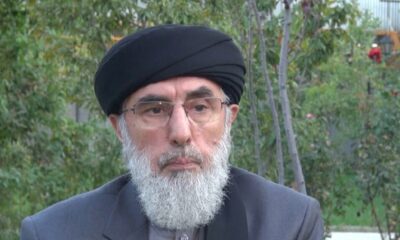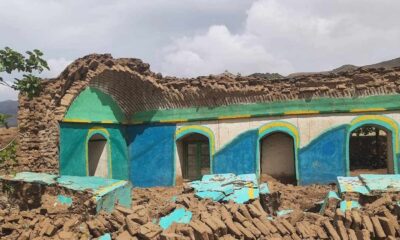Latest News
Afghanistan worst place in the world for women and children: UN

The Secretary-General’s Special Representative for Afghanistan, and Head of the UN Assistance Mission in Afghanistan (UNAMA), Deborah Lyons, said Thursday Afghanistan remains the worst country for women and children.
“Despite significant progress in the last two decades, Afghanistan remains one of the worst places in the world to be a woman, and one of the worst to be a child,” she briefed the Security Council on the situation in Afghanistan.
She said that the level of violence on the battlefield remains deeply worrying.
“The last few weeks have seen near-record numbers of security incidents, including egregious attacks by spoilers targeting civilians involved in the peace process.”
Deborah calls on all warring parties to reduce the level of violence.
It comes as the main obstacle, the prisoner swap process between the Afghan government and the Taliban, ahead of the intra-Afghan talks has been removed.
National Security Council spokesman Javid Faisal said Thursday the prisoner release process has almost ended and peace talks can now start.
He said: “It is imperative that intra-Afghan peace talks begin as soon as possible.
“The Islamic Republic of Afghanistan has received our commandos held hostage by the Taliban, after which the government released the remaining 400 convicts, except the few for which our partners have reservations. Diplomatic efforts are ongoing. We expect direct talks to start promptly,” he said.
Meanwhile, Deborah Lyons urged the two sides to consider a humanitarian ceasefire as one of the first items on the agenda of Intra- Afghan negotiations.
“For Afghanistan’s most vulnerable people, the stakes could not be higher. I urge all member states to amplify this call as the negotiations begin. And the negotiations will begin,” she noted.
“After four decades of war, the people of Afghanistan have more reason than ever to hope that this devastating conflict may come to an end,” UN envoy said.
“After four decades of war, the people of #Afghanistan have more reason than ever to hope that this devastating conflict may come to an end,” UN envoy @DeborahLyonsUN tells Security Council. More: https://t.co/N3lhm8supy pic.twitter.com/0JTnVDPaLu
— UNAMA News (@UNAMAnews) September 3, 2020
Deborah Lyons also emphasized the need for women’s participation in the coming Intra-Afghan negotiations that could pave the way to end the long-term war in the war-weary country.
“We all know that talking will not be enough. Women’s rights are already emerging as one of the most difficult issues confronting the conflict parties as they enter negotiations, and one where any compromises could pose, will pose, a difficult dilemma for member states,” she said.
“The issue will be more central, this issue of women’s rights will be more central in the Afghan peace process than we have ever seen in any other peace negotiation in recent memory.”
She noted that it is women’s representation at the peace table that offers the best opportunity to ensure that their own rights are upheld and that their vision for elements of a peaceful Afghanistan is reflected in all aspects of the talks.
“I commend the women members of the Islamic Republic negotiating team and other peace structures for their energetic outreach and substantive preparations for intra-Afghan talks.”
“As of this moment, we are not yet aware of any women’s representation on the Taliban side, but we remain hopeful that they, too, will find a way of meaningfully including women, the other 50 percent of the population, in their negotiation team,” Lyons added.
Latest News
Iran executes four Afghan prisoners

Iran executed four Afghan prisoners in Vakliabad Prison in Mashhad on Thursday morning, a human rights group reported.
Haalvsh said that the individuals had been arrested in 1398 over drug-related charges and then sentenced to death by the court.
This organization announced the names of the executed prisoners as Zaman Taheri, Salam Taheri, Gholam Qadir Samani and Ebrahim Noorzahi.
Zaman Taheri and Salam Taheri were brothers.
Iranian officials have not commented about the matter so far.
Latest News
Roof collapse kills two in Helmand

Two people were killed after roof of their house collapsed in southern Helmand province on Friday night, officials said.
Abdul Bari Rashid, head of information and culture in Helmand, told Ariana News that the incident occurred in Tajkan village of Gershak district due to heavy rain.
According to him, the dead include a woman and a child. A man was injured in the incident.
This comes as 10 people have died and six others have been injured as a result of the floods in Helmand province in the last one week.
Latest News
IEA urges World Bank to resume work on 7,000 incomplete projects

Officials at the Ministry of Rural Rehabilitation and Development (MRRD) say 7,000 incomplete projects of the World Bank are at risk of destruction in Afghanistan. They call on the World Bank to resume the work of these projects.
According to them, discussions have been held with the World Bank about these projects, but there has been no result yet.
“7,000 incomplete projects are being destroyed, and if the work is not started, these projects will be destroyed. We ask the World Bank to resume the work of these projects as soon as possible,” said Noorul Hadi Adel, the spokesperson of MRRD.
Meanwhile, members of the private sector also ask international institutions to resume their work in Afghanistan.
According to the officials of this sector, with the start of these projects, job opportunities will be provided for thousands of people in the country.
“These projects create employment for our people and the country will grow a lot,” said Mirwais Hajizadeh, a member of the private sector.
However, economic experts stated if the work of these projects does not start soon, they will be destroyed and the investments made in them will be wasted.
-

 Sport5 days ago
Sport5 days agoACL fever grows as fixtures finalized
-

 Latest News5 days ago
Latest News5 days agoOver 50 people dead in traffic accidents over Eid
-

 Latest News5 days ago
Latest News5 days agoUS identifies Kabul airport suicide bomber
-

 Business5 days ago
Business5 days agoAfghanistan-Kazakhstan chamber of commerce opens in Herat
-

 World4 days ago
World4 days agoIsraeli military vows response to Iran attack as calls for restraint mount
-

 Sport3 days ago
Sport3 days agoATN secures exclusive rights to broadcast Paris 2024 Olympics
-

 Latest News4 days ago
Latest News4 days agoPakistani police give Afghans in Balochistan one day to leave
-

 Latest News4 days ago
Latest News4 days agoHekmatyar slams US for ‘occupying’ Afghanistan’s airspace
























